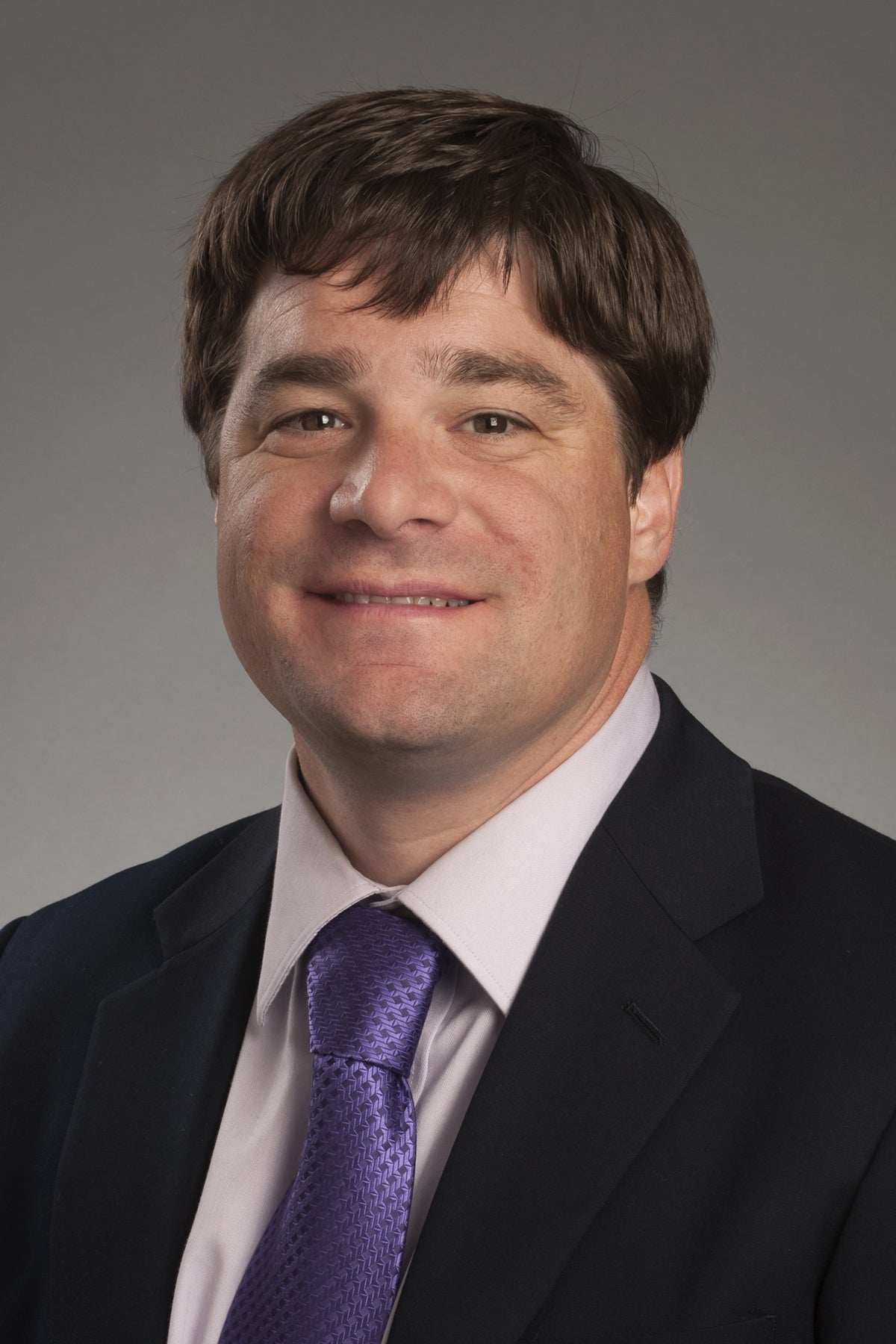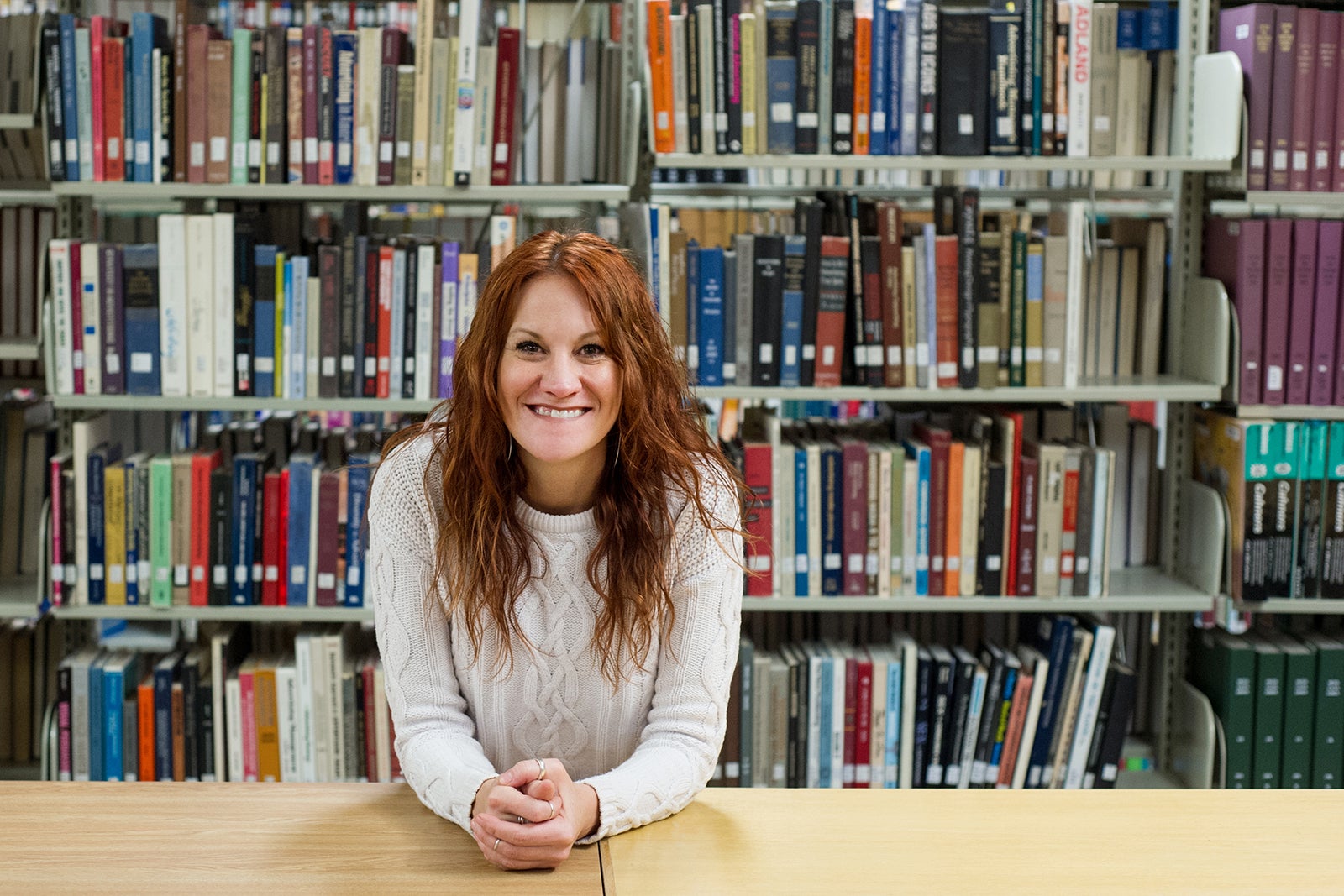Fall and winter calendars are packed for researchers in the College of Health Sciences’ School of Social Work. The biggest event of all, the Council on Social Work Education Annual Program Meeting, recently took place in Florida. But the school’s faculty members push year-round for the answers to some of the community’s most pressing challenges.
Supporting providers with better policy and program design

Nate Williams, an associate professor, arrived at Boise State in 2015, following completion of his doctoral program at the University of Tennessee. His work focused on organizations that provide mental health services for children and how the culture, climate, and leadership of those programs are significant factors in outcomes for children. He worked on several National Institutes of Health projects centered on improving the quality of programs.
Williams joined the college with years of experience as a therapist and was deeply involved in social work and the agencies that provide social services. As a licensed clinical social worker, he had worked in Nampa since 1997. He completed his master’s in social work at Boise State in 2004.
His research focuses on children’s mental health. The question he’s asking: “How can we support providers to be able to adopt and use effective, research-supported interventions with high fidelity?”
He and his research team are working on a variety of projects. One, supported by the National Institute of Health, aims to support those involved in clinical practice to optimize results through the use of weekly interactive, online feedback.
For the past three years, Williams and collaborators have worked with the Idaho Department of Health and Welfare’s Division of Behavioral Health to evaluate mental health care for children in Idaho. The effort has involved a survey of hundreds of families statewide. He regularly presents findings to state policy-making bodies and other groups, including the influential Idaho Parent Network conference, and through online open presentations. He presents and participates in several national conferences and collaborates with fellow academics from across the country.
Some of the questions he first encountered as a student, therapist, and social worker still inspire him, including: How can we do better by children? How can we best use the information we have for their improved well-being, as effectively and cost-efficiently as possible?
Answers to these questions, he believes can drive better policy and better program design, to be sure, but they also can improve law, clinical training, and the education of social workers.
“I’ve always been excited about provider-partnered research, and I truly believe that research and practice can have a meaningful partnership that does directly benefit the community here,” Williams said.
Examining societal impacts on marginalized adults

While Williams is applying his skills and experience for the benefit of children and younger people, Jill Chonody, associate professor and master of social work coordinator, is spending lots of her time looking at societal impacts on marginalized groups of adults.
Her interests, honed at Indiana University Northwest, the University of South Australia, and Temple University, have to do with ageism and aging, bias, stigma, and sexism. She has authored or co-authored dozens of peer-reviewed journal articles and two books.
Chonody studies the scholarship of teaching and learning, including spoken and written instruction, and student attitudes toward vulnerable populations.
Along with other School of Social Work faculty members, she is highly regarded for the degree to which she has involved graduate students in her research and presentations. In 2018, she was the first to have a social work student present at the Boise State Graduate Student Showcase. The student, Jess Jensen, won one of three College of Health Sciences awards that year.
Increasingly, Chonody also is structuring research projects that harness emerging online resources and platforms to facilitate data and information gathering. She has looked to PhotoVoice to structure ethical multimedia research work that keeps the focus human and ensures that people are at the center of the project. At Temple University, group processing and photoshoots deepened her research with teenagers.
Large-scale surveys in the United Kingdom and Australia regarding long-term relationships and what that idea means to people have benefited from a combination of quantitative and qualitative approaches. Her work in the development of measurement scales has been useful for planners and leaders looking to improve the student experience at the university level.
Chonody, who presented at a conference in Sweden during her participation in the Fulbright Scholar Program and who is part of a global network of academicians, serves on the Commission for Research within the Council on Social Work Education and attended the board and commission meetings held in conjunction with the Florida conference. She presented a poster there.
The poster, which describes the results of sampling she and her students conducted in the community during the pandemic, benefited from Chonody’s use of Amazon Mechanical Turk, MTurk, a crowdsourcing service offered by the retail behemoth that is used primarily by marketers but that, she believes, holds considerable potential for researchers. The team found, among other things, meaningful correlations between lower health status, exposure to COVID-19 information, alcohol consumption, and fear.
Another crowdsourced project has looked at loneliness among young people during the pandemic. She is also working on data she and a Utah colleague gathered through MTurk on how people older than 55 first picked up technology; a separate study with Boise State collaborators is meant to see if students can articulate such things as environmental and reproductive rights.
As with Williams’ work, such understanding can shed light on whether community programs, clinical training, and university curricula are hitting the mark.